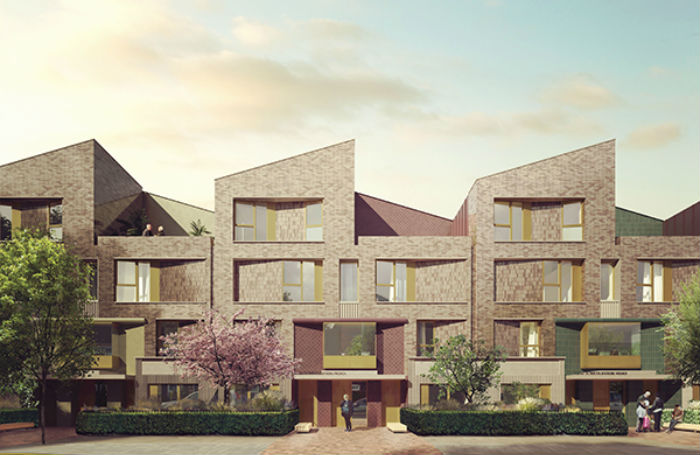Area and estate regeneration consultations have been getting a bad press of late, particularly in London, where property prices are high, and developers’ community engagement efforts can easily be dismissed as smokescreens behind which their profit-driven proposals remain little changed.
The Somerleyton Road project in Brixton, south London, bucks this trend as a community-led, mixed-use scheme. Its design brief grew out of extensive local consultation and a continuing sharing of control beyond the recently awarded planning permission.
Lambeth Council, the client, has retained control of the project while appointing igloo Regeneration – a business with a reputation for taking social responsibility seriously - as the development manager; the scheme is getting igloo’s signature multi-designer approach with not one architect on board, but five.
Masterplanner and lead architect Metropolitan Workshop is joined by Haworth Tompkins, Mae Architects, Foster Wilson Architects and local Brixton practice Zac Monro Architects.

The scheme will deliver 304 new homes for rent by local people, while also relocating the Ovalhouse Theatre in a purpose-built home and providing community facilities that include a gym, dementia care unit, warden-assisted homes for the elderly, convenience store and a children’s nursery.
Key to the community-led brief was majority landowner Lambeth’s decision to act as its own developer. There are in fact three joint clients: Lambeth, Ovalhouse and Brixton Green, the community association set up at the scheme’s inception to channel and maintain community input.
Nick Phillips, associate director at Metropolitan Workshop, says the high level of shared control at Somerleyton Road is ground breaking, as is the council’s decision to return to direct council house building.
Metropolitan Workshop tendered for the project alongside igloo with the design team approach a key part of the bid. ‘Coordinated variety’ as we called it, Phillips recalls.
The practice’s masterplanning role during a period of extensive community events and discussions eventually led to the massing diagram for the street, at which point the other architects came on board and Metropolitan’s role evolved into co-ordinating or lead architect, says Phillips. The practice is also designing two of the six projects.
As many of the homes as possible in the Somerleyton Road scheme will be affordable, with igloo planning to go beyond the council’s usual target of 40% and to deliver ‘target rent’ levels that for people on low incomes will be the same as council rents, another first for Lambeth.
Last summer the scheme was named as New London Architecture’s winner in the Unbuilt Housing category.
Conventional wisdom on renewal has also been abandoned, with existing residents fully onside, in Glasgow’s Woodside, where Collective Architecture has developed proposals to retain a cluster of three late-60s tower blocks for refurbishment.
What might have been prime candidates for demolition are instead being refurbished, and with the target of meeting the Passivhaus Low Energy Building Standard to deliver major savings on space heating costs.
The Cedar Street and Cedar Court project involves the refurbishment of 314 homes in an ethnically diverse community. Queens Cross Housing Association acquired the blocks following a stock transfer.
The option appraisals that were carried out encompassed demolition and partial demolition. However, as project architect Rupert Daly states it became apparent that tenants wanted to stay as the blocks are very well located: ‘The dissatisfaction with the blocks tended to be external, there were few complaints from people who lived there and no stigma about being in a 60s tower block.’
The project is currently on site, with all residents in place and no decanting, and with tenants coming forward for hands-on involvement in pilot M&E trials.
Thanks to Nick Phillips, associate director at Metropolitan Workshop, and Rupert Daly, architect at Collective Architecture.
Text by Neal Morris, © RIBA









